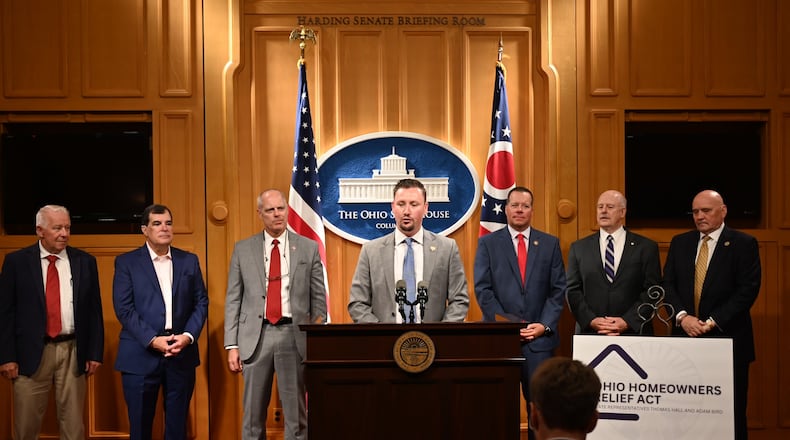The Ohio tax commissioner has recommended the following average property value increases for Southwest Ohio counties undergoing the triennial update: Butler - 42%, Clermont - 43%, Greene - 32% and Montgomery - 37%. If the legislation becomes law, the average hikes for Butler and Clermont counties would drop to 25% and 28% respectively, according to the Ohio Department of Taxation.
They didn’t calculate the other counties, but Montgomery County Auditor Karl Keith said his estimate using the parameters in the bill — three years of sales equally weighted instead of emphasis on 2022 — would be an average 25%. His increase using the tax department’s methodology is 34%.
“This is changing the state policy for good. This has broad implications not just for the 13 counties this year but also for the counties that are going to be up next year for their valuations,” Hall told the Journal-News. “It could be a pretty big shift that we’re taking to ensure that our property owners are protected from these outrageous property valuations. Which right now is dictated by an unelected bureaucrat in Columbus.”
Properties statewide are reappraised every six years, and property values are updated every third year based on sales data, and the shifts are reflected on tax bills the following the year. Auditor’s offices in 13 counties are in the process of the triennial update.
The law change would force the tax commissioner to equally weight all three years considered during the reappraisals. When Tax Commissioner Patria Harris sent her recommended increases earlier this year, she placed heavy emphasis on 2022.
Lang said he will know by June 6 whether his amendment will stay in the budget bill, but he assumes it will. The House bill was introduced because that chamber already passed its budget; the local lawmakers didn’t want their colleagues to be blindsided when the Senate budget is returned to the House.
“The reason to have Thomas and Adam Bird introduce that legislation is to get some hearings on it, so we can get some learnings on the pros and cons of the bill,” Lang said. “Then our goal is to fully codify it in the budget, that is the hope.”
The legislation was born out of a protest started by Butler County Commissioner Don Dixon, after he learned values could go as high a 24% — the initial estimate by Butler County Auditor Nancy Nix. He convened a summit of county and state leaders four weeks ago. It was Butler County Prosecutor Mike Gmoser’s idea to change the permissive word “may” in the state laws regarding reappraisals to “shall” so the tax commissioner’s discretion is removed.
Local leaders have been irate over the increase because current economic conditions prompted by the coronavirus pandemic — like grossly inflated home sales — weren’t taken into account. Gmoser’s idea was seen as the quickest way to give taxpayers relief in a very unusual environment. Everyone agreed longer-term legislative solutions are required.
Dixon said “anytime it goes from 42% to 24%, that’s a win.”
“It’ll make it a lot easier of a financial burden on our taxpayers for next year,” Dixon said. “We’re still looking for longer-term solutions, but this is the quickest, best solution at this point.”
Keith said he has some reservations about the bill, especially since some auditors have already finished their work for the triennial. He agreed the legislature needs to do more.
“I think what we’re doing here is addressing the wrong side of the equation,” he said. “It’s not a value problem, it’s a tax problem and that’s been the case for a long, long time here in Ohio, the overreliance on property tax to fund government services is the real problem.”
About the Author

